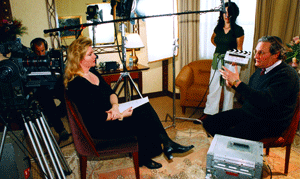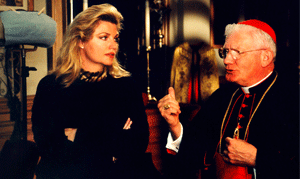The Turkish Oscar Schindlers
- Written by
- Published in Culture & Art
Ali Çınar
This email address is being protected from spambots. You need JavaScript enabled to view it.
Some call them the Turkish Oskar Schindlers for what they did to rescue Jews of Turkish origin. Necdet Kent was consul general in Marseilles, France, between 1941 and 1944, Selahattin Ülkümen was a consul in Rhodes during the Second World War, and Namık Yolga was the Vice-Consul at the Turkish Embassy in Paris, France.
This email address is being protected from spambots. You need JavaScript enabled to view it.
Some call them the Turkish Oskar Schindlers for what they did to rescue Jews of Turkish origin. Necdet Kent was consul general in Marseilles, France, between 1941 and 1944, Selahattin Ülkümen was a consul in Rhodes during the Second World War, and Namık Yolga was the Vice-Consul at the Turkish Embassy in Paris, France.

Turkish diplomats are estimated to have saved 10,000 Turkish Jews by insisting the Germans respect their Turkish nationality. Another 10,000 Jews from Romania and Hungary may also have found refuge in Turkey during that time.
Desperate Hours, filmed in five countries -- Israel, Turkey, Italy, Austria and the United States -- tells the little known story of Turkey’s rescue of thousands of Jews facing certain death during the Holocaust.
All three diplomats have died since being captured on film. Desperate Hours reveals these stories of Muslims, Christians and Jews co-operating in saving lives during the Holocaust. Producer, director, writer and actor Victoria Barrett talked to TURKOFAMERICA about her current projects Journey of Faith and her well-known documentary Desperate Hours.
What can you tell us about yourself?
I have 20 years experience in the entertainment industry as a producer, director, writer and actor, and I am president of Shenandoah Films. My most recent production is Journey of Faith which I produced, co-wrote and hosted.
What is it about?
This documentary traces the history of Christianity in the Republic of Turkey. Called Asia Minor in Biblical times, Turkey is second only to Israel in Biblical sites, and is a treasure-trove of early Christian history. Journey of Faith was shot in Super 16mm in 15 locations throughout Turkey. Stunning locales include Mt. Ararat, the Aegean and Mediterranean coasts, Ephesus and Istanbul. The Broadcast Premiere of Journey of Faith was on West Virginia PBS in December 2008, with national distribution expected in 2009.
You also directed and produced the award-winning documentary film, Desperate Hours, which has aired nationally on PBS stations throughout the United States. Could you tell us about the documentary?
This production, filmed in five countries, tells the little known story of Turkey’s rescue of thousands of Jews facing certain death during the Holocaust. Turkish diplomats put their lives at risk to save Jews being shipped to concentration camps, and as Germany began excluding Jews from university and professional positions, Turkey welcomed them. The film also explores how Archbishop Angelo Roncalli, Apostolic Delegate in Istanbul during the war, who later became Pope John XXIII, worked with future leaders of Israel in rescues. Pope John XXIII convened the Second Vatican Council, which issued Nostra Aetate. Desperate Hours reveals these stories of Muslims, Christians and Jews co-operating in saving lives during the Holocaust.
Which awards did you win with Desperate Hours?
Desperate Hours premiered at the U.S. Holocaust Memorial Museum in Washington D.C and was the Grand Jury Winner and Audience Award Winner at the DC Independent Film Festival in 2003. I was also recognized for Creative Excellence as Director of Desperate Hours at the International Film and Video Festival in CA. B’nai Birth Canada honored me with The Global Excellence in the Arts Award in 2004. Desperate Hours has also been broadcast in Europe and the Middle East, including Israel Channel One and CNN-Turk. The film has had many festival screenings as well as special screenings internationally.
Could you tell us about your current projects? As far as I know, you had starring roles in some films as well.
Projects in development include a full-length documentary on the Pentagon and 9-11, a story that has largely been overshadowed by media attention on other tragedies of that day, and “The Guilt of the Innocent” a documentary on Pope John XXIII and his rescue of Jews during the Holocaust as well as his transformation of Catholic teachings towards Jews.
For the U.S. Agency for International Development, I produced and directed an educational series about the role of religion in developing countries and how it impacts US foreign assistance programs, especially in conflict areas. As an actor, my films include starring roles in Russian Roulette, Three Kinds of Heat, America 2000 and Over the Brooklyn Bridge. I was a guest star on the hit television program Cheers.

Can you tell us how you came about wanting to shoot the Desperate Hours documentary?
I heard about the stories of the Turkish diplomats involved in rescues. I realized that this was a little known chapter of the Holocaust, and given the age of those involved, that the story needed to be documented – and soon.
What made you want to do this, and what was going through your mind the first day you picked up the camera?
I was inspired and humbled by the actions of those that I had now researched. On the first day, I was hoping to truly capture these remarkable individuals telling their own stories and preserve it for history.
What is your own movie background and how does this tie into the subject of your documentary?
As an actress I had filmed in Israel, living there for months. I had been living in Turkey for several years when I started Desperate Hours, so I felt connected to both countries.
How many people did you chronicle?
I interviewed about 50 people.
Can you define Desperate Hours in one sentence?
Desperate Hours tells the little known story from World War II of Turkey and the Holocaust - a rare moment when Muslims, Jews and Christians all work together to save lives. The story is told by the people that lived it in interviews filmed in five countries. They tell their stories of bravery, rescue and hope during some of the darkest hours of human existence. From this time come future world figures - from Pope John XXIII to leaders of Israel and Turkey.
What was the most unforgettable shot on your documentary? Why?
I don’t think there is just one shot. However, the section on Ambassador Kent always gets a strong reaction from audiences. At the end, after this remarkable story is told by Ambassador Kent and Dr. Mordecai Paldiel, Head of the Department of Righteous of the Nations of the Earth at Yad Vashem, Jerusalem, the audience is usually emotional. Ambassador Kent modestly says: Anyhow, I got all the Turks out. That’s about all.
You also conducted interviews with Jews who were rescued by Turkish diplomats? What was your first reaction when you first listened to their stories?
I was saddened by the horrible things done to the Jews, but hopeful for humanity by the actions of the diplomats and others involved in rescue.
Did Coca Cola CEO Muhtar Kent contact you? You had an interview with his father Diplomat Necdet Kent.
Yes, I’ve spoken with Muhtar several times. I spoke with him right after his father died, marveling at what an amazing life the Ambassador had led and that it was my honor to have met him and told some of it.
What did you want people to take away from your documentary?
Hope but to never forget the past.
What kind of feedback did you receive from Jews and Jewish-American organizations?
They have been very kind to me and in their praise of the film. Many did not know about this particular chapter of history in the Holocaust.
Do you think you received a satisfactory response in Turkish, Israeli & American media on your documentary?
I was very happy to have Desperate Hours air nationally on PBS. It is still playing. However, I would have liked more news coverage of the film.
Where do you see the Turkish and Israeli relationship in 2009?
The relationship between the Turks and the Jews is a very old one. In any long relationship there are ups and downs. I hope that 2009 brings “ups”.
Are you planning or working on a project?
Projects in development include a full-length documentary on the Pentagon and 9-11, a story that has largely been overshadowed by media attention on other tragedies of that day, and “The Guilt of the Innocent” a documentary on Pope John XXIII and his rescue of Jews during the Holocaust as well as his transformation of Catholic teachings towards Jews.
Any final words?
Making this documentary, the many screenings around the world that followed and the wonderful people I have met have greatly affected my life. I hope it has made me a little better person.
Thank you so much, Victoria Barrett.
Last modified onSaturday, 06 May 2017 10:07
Tagged under









